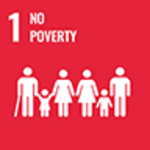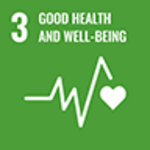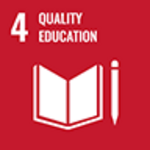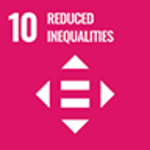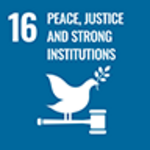

Professor Ichiro Matsumoto
Affiliation: Graduate School Faculty of Education ・Graduate School Graduate School of Education(School of Education Department of Education)
Area of Specialization: Educational Welfare Theory
Keywords of research: poverty, child poverty, social welfare, education, social problems
Alma mater: Mikunigaoka High School (Osaka Prefecture)
Final academic background: Graduate School of Education, Hokkaido University
HP address: https://researchmap.jp/ichiromatsumoto
*This article was originally published in the 4th issue of "Frontiers of Knowledge" and has been re-edited for the web. Updated on January 25, 2023
What inspired you to start your research?
When I entered Hokkaido University in 1979, my mind was full of mountaineering and I was completely ignorant of these issues. The first trigger was a paper I read in a specialized seminar in the third year when I moved to School of Education. A paper on poverty studies in industrialized countries, stating that the Japanese government stopped using official statistics and measures of poverty in 1965, which went against international trends, and that Japan pays more attention to poverty issues. I learned that there are few researchers. I clearly remember feeling naive that it was strange that we were discussing social welfare and education without paying attention to such important basic materials. Today, the issue of poverty and child poverty is of great social and policy interest, and the government has published estimates of the poverty rate since 2009. It was treated as a minor issue. The second reason was that I had to leave my family and go to a child welfare facility where my children live, in order to help my friend with his graduation thesis. I learned about the existence of children who have had unreasonable experiences while going to teach children to study. I felt that it was unfair that there are children and young people who are faced with poverty and whose possibilities are greatly restricted, but that reality is treated as a minor problem. It was a series of coincidences that led to my research, but before I knew it, I was immersed in it.
What kind of research are you actually doing?
When I was a graduate student, the first thing I worked on was the theme of what kind of lives children who lived in children's homes have after leaving the facility. With the cooperation of many facilities in Hokkaido, I was able to statistically grasp overall trends, and at the same time, I interviewed children and young people directly to organize the actual work and life of children and young people. One of the things I learned was that the "difficulty" of life and work and "social isolation" are closely related. Poverty isolates people, so it is difficult for others to understand. And that's why I felt the importance of systems that directly support people, such as education and social welfare. On the other hand, however, there is a limit to what education and social welfare can do. Here are some recent research results. Like the children's homes mentioned above, this project targets "self-reliance support homes" where children and young people in their late teens to around 20 years old live, especially those who cannot live with their families for various reasons. We worked with all self-reliance homes across the country to research the children's backgrounds. Organize the difficulties experienced and faced by each child/young person before moving into the home, classify them broadly into “damage,” “collapse of livelihood/poverty,” and “exclusion (isolation),” and identify each child/young person. Figure 1 shows the overlap with young people. Looking at this, we can see that in many cases multiple of these three dimensions overlap and the difficulties they experience are compounded. The important thing here is that the corresponding principles are qualitatively different. Each is a serious problem, but the principle of responding to "damage" is "recovery", the principle of responding to "collapse of living infrastructure and poverty" is "stabilization of life", and the principle of responding to "exclusion (isolation)" is It is “inclusion (building connections)”. In this way, if actual disadvantages and difficulties are formed by combining problems with different principles of response, policies and practices for support need to be conceived in a complex and comprehensive manner. will be In retrospect, both the original and recent studies are similar in their analysis of problems centered on the interrelationships between poverty and isolation. In the 30-odd years since I began my research, I have conducted many surveys and have broadened my horizons to include foreign system research and theoretical research.
Organize the difficulties experienced and faced by each child/young person before moving into the home, classify them broadly into “damage,” “collapse of livelihood/poverty,” and “exclusion (isolation),” and identify each child/young person. Figure 1 shows the overlap with young people. Looking at this, we can see that in many cases multiple of these three dimensions overlap and the difficulties they experience are compounded. The important thing here is that the corresponding principles are qualitatively different. Each is a serious problem, but the principle of responding to "damage" is "recovery", the principle of responding to "collapse of living infrastructure and poverty" is "stabilization of life", and the principle of responding to "exclusion (isolation)" is It is “inclusion (building connections)”. In this way, if actual disadvantages and difficulties are formed by combining problems with different principles of response, policies and practices for support need to be conceived in a complex and comprehensive manner. will be In retrospect, both the original and recent studies are similar in their analysis of problems centered on the interrelationships between poverty and isolation. In the 30-odd years since I began my research, I have conducted many surveys and have broadened my horizons to include foreign system research and theoretical research.
What kind of research are you going to do in the future?
There are many things I want to do. We have started a new survey on child care issues. Joint research is also underway to broaden the scope of child poverty research by redefining the family from the perspective of feminism. In 2016, we conducted a child poverty survey covering all of Hokkaido and published it as a book. In 2022, we will conduct a second survey, which is currently being analyzed. I think it is important to collect such data. I would also like to start organizing the history of research on child poverty. And finally, if allowed, I have a secret desire to do the same research I did when I was a graduate student. I would like to see what I overlooked when I was in my 20s, and what I can see if I do the same research 30 years from now.
Reference book
- Written and edited by Ichiro Matsumoto et al. "Child Poverty - For Happiness Equality in Childhood" Akashi Shoten 2008
- Ichiro Matsumoto, "Child Poverty and 'Overlapping Disadvantages': Through the Survey Results of Child Abuse Problems and Self-Support Homes," Quarterly Social Security Research vol.48-1, 2012 (Source of Figure 1)
- Edited and Written by Ichiro Matsumoto et al. "Children's Poverty Handbook" Kamogawa Publishing 2016
- Edited and Written by Ichiro Matsumoto, Re-questioning 'Child Poverty': From the Perspectives of Family and Gender, Law Bunka-sha, 2017
- Edited by Ichiro Matsumoto, "Children and Family Poverty: Findings from Interdisciplinary Research," Horubunkasha, 2022

















